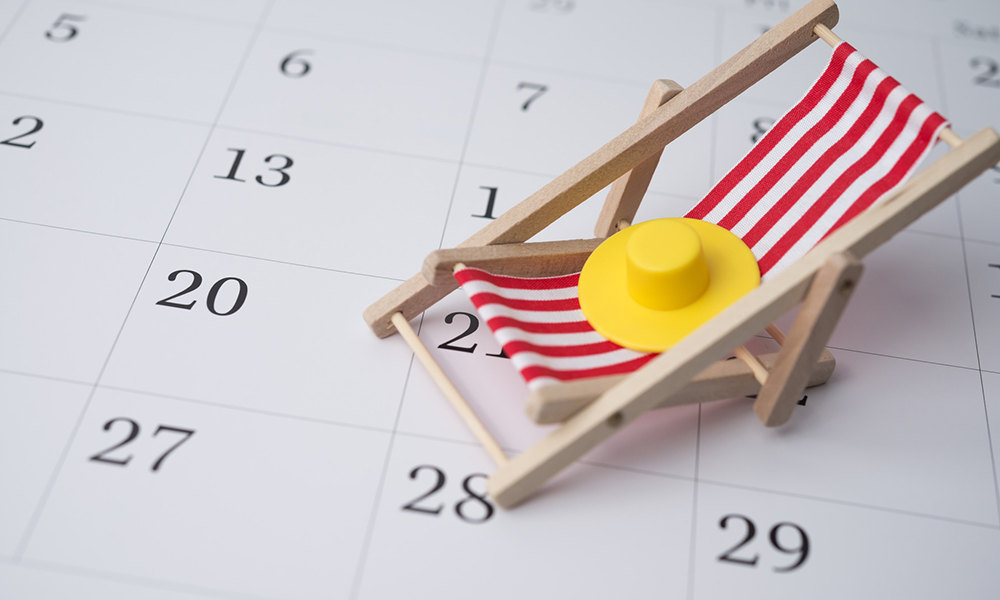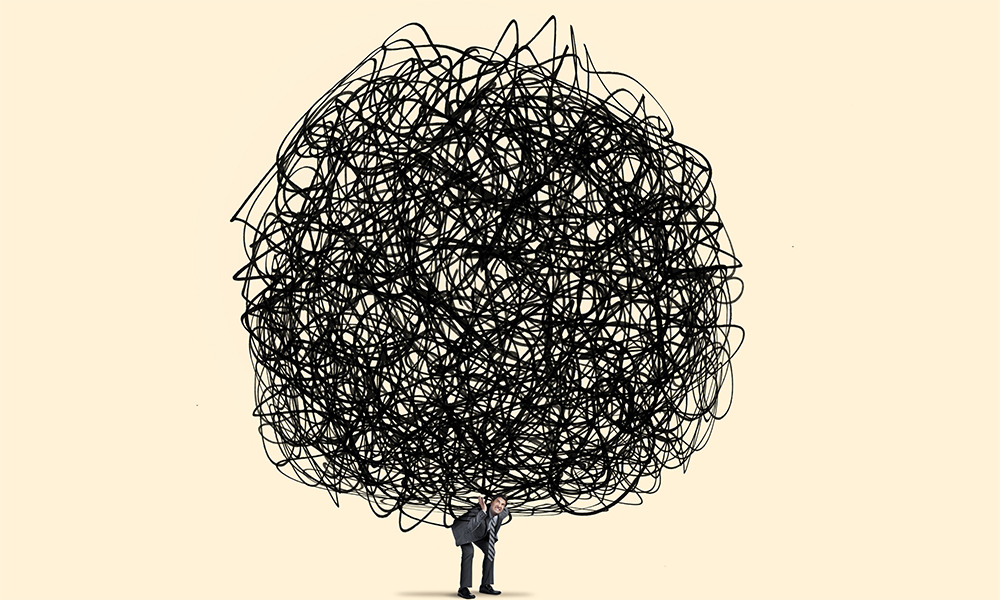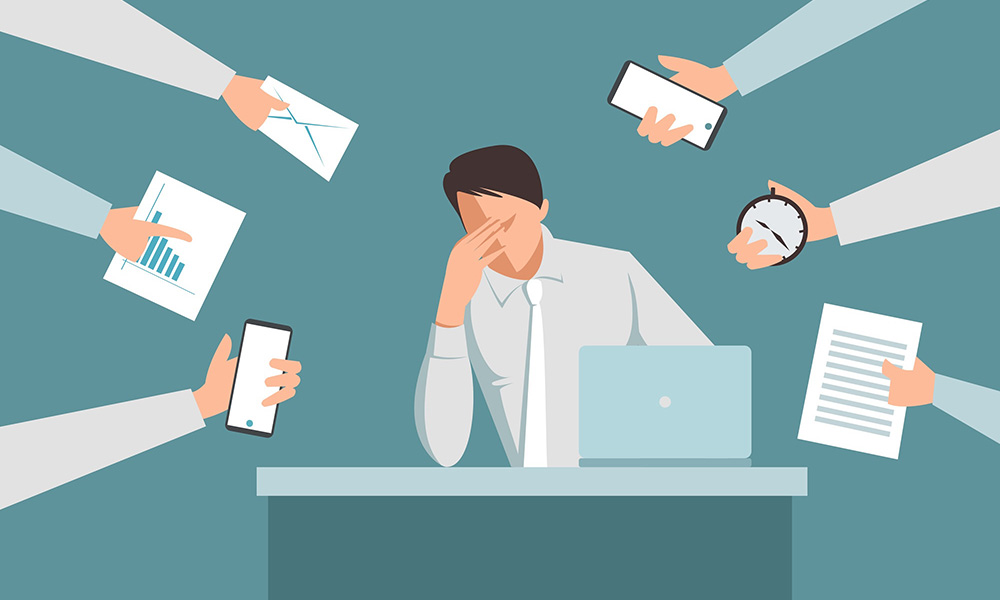Think about the run-up to a big presentation. Or getting a new product launched on time. Go back to the days when you were in school. How about the adrenaline rush before a major game or race? The feeling before a big exam?
We’ve all experienced stress at arguably the most pivotal moments in our lives. Each of these moments was probably a mix of restlessness, nervousness, heart racing, unease and yet a tinge of excitement and anticipation.
In a world that never switches off, stress has become our constant companion. It makes headlines and not always for the right reasons—stress-related illnesses abound, and it is often linked with depression, heart disease, and a host of other life-style and health-related disorders.
But, interestingly enough, when I think back to the most stressful moments in my life, I find that they have not always been debilitating. Rather, many have been times when I experienced the most growth and learning. In some of these moments, stress was a catalyst. It sharpened my senses and focus to produce better performance and results. That said, at other times, I have also experienced the classic by-products that we most often hear about—a crippling feeling, overtaking my rational mind and engulfing me in fear and doubt.
So, given that we live and work in remarkably stress-filled times, my message this week is on why stress is sometimes our friend and at others, our foe. Is it possible that, just like cholesterol, there is “good” stress versus “bad” stress? And if so, is there a way to channel stress so that we can use it to enhance our life rather than harm it? Quite simply, can we use stress to our advantage?
The chemical advantage
As it turns out, stress has benefits. And this is due largely to a very interesting chemical called noradrenaline, which is released when our brains feel stress.
Noradrenaline is interesting because it has a good side and a bad side—when acting upon our brains, it increases focus and alertness, enhancing memory and promoting vigilance. Noradrenaline’s good side is what accounts for the stories we hear about mothers demonstrating herculean strength and presence of mind in moments of acute stress, such as saving a child from a trapped car after an accident. However, this same chemical, when showing its bad side, is also responsible for increasing restlessness and anxiety, which in turn can make us weak, ineffective and unable to focus. In a wonderful blogpost on Crew.co, Jory Mackay says:
“As long as we find ways to control and handle stress emotionally, it can actually be an incredible way to boost brain function, increase creativity, and ultimately (and somewhat ironically) become happier, less anxious, and less depressed.”
So essentially, the root of stress comes from a chemical that has the power to benefit us greatly—if only we can learn how to harness its positive benefits rather than its negative ones.
Re-think stressful situations
“Whether you think you can or think you can’t, you’re right”, said Henry Ford. And he may have unknowingly hit upon the key to tapping into the benefits of stress—it’s all about how you think about things.
According to a recent study, our reaction to stress is largely dependent on our perception of it. If we are able to reframe how our mind sees stress, we can actually change how we are affected by it.
Shawn Anchor, author of The Happiness Advantage and Before Happiness, who conducted the study along with two Yale researchers, explains this very well:
“If we could get someone to change their mindset around stress to see it as a challenge instead of as a threat, they had 23% fewer stress-related symptoms like headaches, backaches and fatigue. The stress was still there but the effect upon the body was completely changed. So stress is inevitable but its effects on us are not.”
Take a look at this popular TED Talk by Kelly McGonigal, a Stanford University professor, on the benefits of stress. She states that stress is not inherently harmful to us, it is our belief that it is harmful that makes our blood vessels restrict and our body tense, thus causing harm.
Of course, saying something is much easier than actually believing it. Life would be a breeze if we could just snap our fingers and ease our worries and stresses away by deciding to think differently about them. In reality, I find that when people try and not think about stress or when they tell themselves to calm down when in a state of anxiety, they actually get more stressed and more anxious!
Alison Wood Brooks, an assistant professor at Harvard Business School, offers a solution that you may find more do-able. She found that people who reframed their stress and anxiety as excitement (which often has many of the same symptoms as stress and is also a high-arousal state) performed much better during stressful moments than those who tried to suppress it or “deal” with it calmly.
So, try and re-think stressful situations as exciting challenges to take on, rather than burdens that we are saddled with. By doing so, you will be able to channel the best aspects of stress—and as it turns out, it takes only 16 weeks to reframe your mindset into a more positive one, according to Elizabeth Bernstein in her article Steps to Turn Off the Nagging Self-Doubt in Your Head in the Wall Street Journal.
Here are a few more tips to help you build a new relationship with stress:
1. Get some control
Intuitively, we would assume that people in high-power positions must be more stressed, but research by the Decision Lab at Harvard suggests the opposite. This is because good leaders tend to have more control over the work they do and the decisions they make, which in turn leads to less stress. Try to apply this idea to yourself. Choose what to work on as far as possible (don’t simply volunteer for or participate in everything!), be clear about prioritising things — actively take control of your work and your interactions.
2. Make connections
We all know the value of good friendships and supportive family members during times of stress. Now, science too backs it. In the Ted Talk I mentioned earlier, McGonigal says that the hormone oxytocin is released at stressful moments (incidentally, this is the same hormone released during child-birth). Oxytocin actually compels us to seek interactions with others, and studies show that by doing so our body’s physical reactions to stress (constriction of blood vessels, etc.) lessen significantly. So friendship and love are now scientifically proven antidotes to anxiety-producing situations!
3. Create little rituals
It was Wimbledon season recently. For many fans, watching the battle, ball after ball, meant stress levels on the rise. Yet, the players are able to perform under such pressure. How do they do it? According to research in sports psychology, pre-performance rituals or superstitions, can significantly benefit athletes—from improving focus to increasing emotional stability and confidence. For Serena Williams, who recorded her 22nd Grand Slam win at the Wimbledon, this includes bringing her shower sandals to the court, tying her shoelaces a specific way and bouncing the ball five times before her first serve and twice before her second. So having a “lucky” outfit or a little prayer or a special “power” breakfast may actually help you the next time you have something important to do!
4. Manage your energy, more than your time
In an insightful interview that appeared in Oprah magazine, Jim Loehr, a performance psychologist who has co-authored the book The Power of Full Engagement, explains the crucial importance of taking breaks:
“Athletes think about energy recovery. Most people don’t. If there’s a massive energy expenditure, you need an equivalent recovery period or you end up exploding…. So many people give 100 percent all day long, but they never renew. Renewal can be doing yoga, getting a massage, listening to relaxing music, turning off your cell phone on the way home, or eating five or six small meals a day rather than one or two bigger ones, to keep your blood sugar up.”
5. See the lighter side
Abraham Lincoln had said, “Were it not for my little jokes, I could not bear the burdens of this office.” Laughter can be such a powerful coping tool and can reduce the physical symptoms of stress. Unfortunately, for many of us, humour abandons us just when we need it the most. Without of course trivialising the gravity of things when you are under stress, try and look at the lighter side of things. Remember that no stress lasts forever – it shall pass!
So, re-think how you manage stress in your life and try to find your “sweet stress spot”, where you are challenging yourself just enough—you’re not so stressed as to hinder performance, nor are you so comfortable as to be bored. You may find that situations that may seem stressful, have the potential to transform into amazing opportunities for growth.
I look forward to hearing your thoughts.









Comments